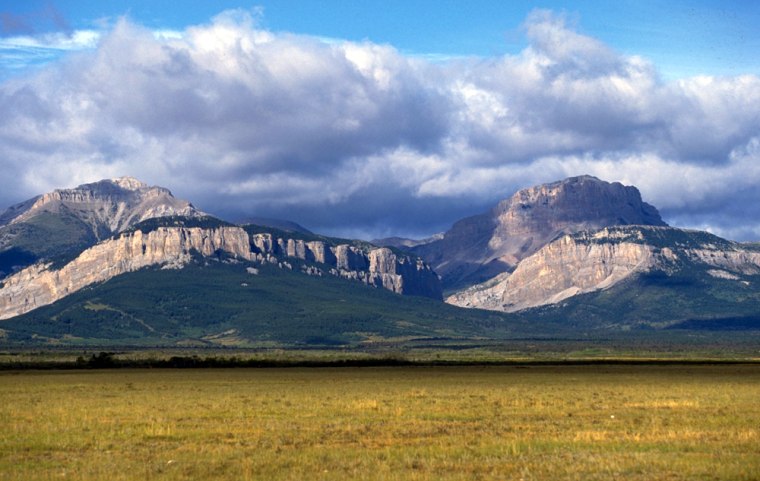The federal government will no longer consider letting companies drill for natural gas along Montana’s Rocky Mountain Front, the Bureau of Land Management confirmed Saturday, quieting for now one of the state’s hottest environmental debates.
The Front, which stretches about 100 miles along the eastern crags of the Rockies south of Glacier National Park, is home to grizzly bears, elk, bighorn sheep and other wildlife.
“We feel that given the complexity of the issue and the enormous public interest in the Rocky Mountain Front, it would be better to take a step back and thoroughly evaluate all options,” said Celia Boddington, a BLM spokeswoman in Washington, D.C.
BLM suspended work on an environmental impact study for the Front’s Blackleaf area, where a Canadian company wanted to drill for gas. The decision to shelve drilling came at the “highest levels” of the Interior Department, said Marty Ott, state BLM director.
Lawsuits possible
Critics were relieved. “We welcome this decision ... because it recognizes and respects the great wildlife and natural values along Montana’s Rocky Mountain Front,” said Karl Rappold of Dupuyer, whose ranch had energy leases on it until he canceled them after taking over the property in the 1980s.
StarTech Energy Corp. of Calgary, Alberta, wanted to drill in the federally owned Blackleaf area, using leases that predated a 1997 moratorium on federal oil and gas leasing in the Front. The Bush administration’s energy plan identifies the Front in Montana as an important source of natural gas, but critics say it’s questionable how much could be extracted economically.
Doug Dafoe, president of StarTech parent Thunder Energy, did not immediately return a call Saturday seeking comment about the decision.
Boddington said the controversy over drilling made court challenges likely.
An oilman who ran unsuccessfully for governor in this year’s Republican primary election, Tom Keating of Billings, disputed the federal decision.
“They ought to at least give the facts of the issue” by completing the study, Keating said. Drilling has occurred elsewhere in an environmentally safe manner and the same is possible on the Front, he said, adding Montana needs the jobs and tax revenue from petroleum development.
Long-term protection sought
By halting the environmental impact study, federal officials effectively opened the possibility of alternatives to drilling. They include giving credits to those who hoped to drill — credits that could be used for work in other areas — or having BLM buy the leases.
It is possible the drilling issue could be revisited and the Blackleaf studies could resume. For that reason, environmental activists want to establish long-term protection for the area.
“It’s now time for Congress to act to protect these lands and fairly compensate leaseholders by offering a buyout or trade for existing leases,” said Gloria Flora, a former Lewis and Clark National Forest supervisor who in 1997 declared the Front off-limits to new oil and gas exploration.
Sen. Max Baucus, D-Mont., has pushed for a lease swap or buyout. Suspension of the BLM’s environmental impact study “gives added momentum to that,” said Baucus spokesman Barrett Kaiser, who added that the senator wants an “ironclad guarantee the Front will be off-limits forever.”
